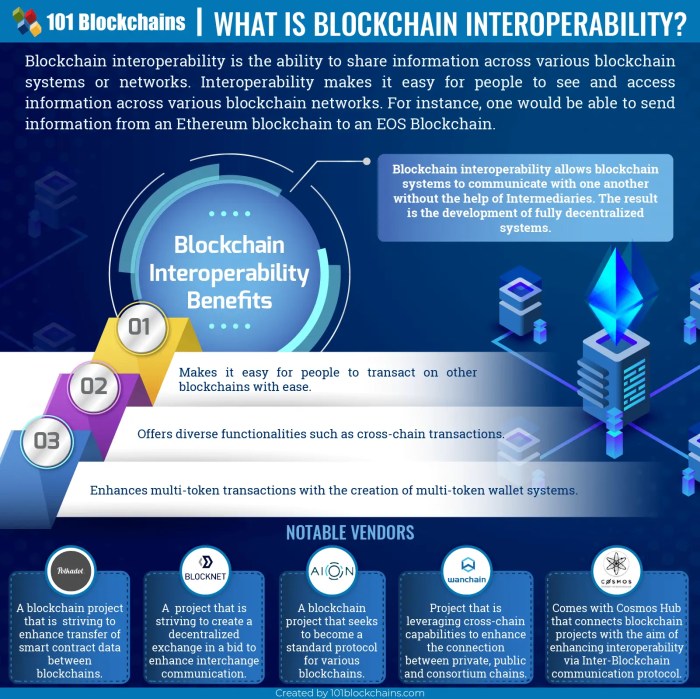The impact of regulations on the development of blockchain technology. – The impact of regulations on the development of blockchain technology is a hot topic. This revolutionary technology, with its potential to disrupt various industries, faces a complex regulatory landscape that varies significantly across countries. Understanding how these regulations shape blockchain’s evolution is crucial for anyone involved in or interested in this rapidly growing field. We’ll explore how different regulatory approaches affect innovation, adoption rates, and the overall trajectory of blockchain development, looking at everything from DeFi to supply chain management and beyond.
This exploration will delve into the specifics of regulatory frameworks, examining their influence on security, compliance, and the emergence of self-regulatory bodies within the blockchain industry. We’ll also look ahead, predicting future regulatory trends and their potential impact, considering the roles of RegTech and the integration of AI.
Regulatory Landscapes and Blockchain Development: The Impact Of Regulations On The Development Of Blockchain Technology.

The development and adoption of blockchain technology are significantly influenced by the regulatory landscape of different jurisdictions. Governments worldwide grapple with how to regulate this nascent technology, balancing the potential for innovation with concerns about illicit activities like money laundering and tax evasion. The resulting regulatory approaches vary widely, impacting the pace of blockchain innovation and its integration into various sectors.
Understanding these diverse regulatory approaches is crucial for businesses and developers working with blockchain technologies. A clear understanding allows for informed decision-making, strategic planning, and compliance with the relevant legal frameworks.
Regulatory Approaches Across Jurisdictions
Different countries have adopted diverse approaches to regulating blockchain technology, ranging from outright bans to supportive frameworks. The following table summarizes some key examples, highlighting the varied regulatory landscapes and their impact on blockchain development.
| Country/Region | Type of Regulation | Specific Regulations | Impact on Blockchain Development |
|---|---|---|---|
| United States | Fragmented, evolving | SEC regulations on security tokens, FinCEN regulations on money transmission, state-level regulations on cryptocurrency exchanges. | A patchwork of regulations creates uncertainty but also fosters innovation in specific areas. The lack of a unified federal framework can hinder broader adoption. |
| China | Restrictive | Bans on cryptocurrency trading and Initial Coin Offerings (ICOs), focus on permissioned blockchain technology for government use. | Significantly slowed the development of public blockchain networks and decentralized applications within China. However, the government’s support for permissioned blockchain in specific sectors has led to growth in that area. |
| Switzerland | Supportive | Clear guidelines on Initial Coin Offerings (ICOs) and blockchain-based assets, favorable tax treatment for cryptocurrencies in some cantons. | Created a welcoming environment for blockchain startups and attracted significant investment in the sector. Switzerland has become a hub for blockchain innovation. |
| European Union | Harmonizing, evolving | The Markets in Crypto-Assets (MiCA) regulation aims to create a unified regulatory framework for crypto assets across the EU. | The ongoing development of MiCA aims to increase legal certainty and potentially boost the adoption of crypto assets within the EU, but its specific impact remains to be seen. |
Impact of Varying Regulatory Frameworks on Blockchain Innovation
The pace of blockchain innovation is directly influenced by the regulatory environment. Supportive regulations foster experimentation and attract investment, while restrictive regulations can stifle innovation and drive development elsewhere. The uncertainty associated with evolving regulatory landscapes can also create challenges for businesses and developers, making long-term planning difficult. For example, the clear guidelines in Switzerland have attracted significant blockchain businesses, while China’s restrictive approach has driven innovation to other regions.
Comparison of Regulatory Environments: Switzerland vs. China
Switzerland and China represent contrasting approaches to blockchain regulation. Switzerland’s supportive stance has resulted in a thriving blockchain ecosystem, attracting numerous startups and fostering innovation. In contrast, China’s restrictive approach has hindered the development of decentralized public blockchains, but has simultaneously encouraged the development of permissioned blockchain technologies within government-controlled projects. This illustrates how different regulatory approaches can lead to vastly different outcomes in terms of blockchain adoption and the specific types of blockchain applications that emerge.
Impact on Specific Blockchain Applications

Regulations significantly shape the trajectory of blockchain technology, impacting its adoption and development across various sectors. The level and type of regulation vary widely across jurisdictions, creating a complex and often unpredictable environment for developers and businesses. This section explores the effects of these regulations on several key blockchain applications.
Decentralized Finance (DeFi) Regulation
The explosive growth of Decentralized Finance (DeFi) has attracted considerable regulatory attention. Governments worldwide are grappling with how to regulate DeFi’s decentralized nature, which often circumvents traditional financial oversight. Regulations focusing on anti-money laundering (AML) and know-your-customer (KYC) compliance are particularly challenging to implement in a decentralized environment. The requirement for exchanges and platforms to identify users and monitor transactions clashes with the core principles of DeFi’s anonymity and permissionless access.
This tension has led to a situation where some DeFi projects are operating in a regulatory grey area, while others are actively seeking compliance, potentially sacrificing some degree of decentralization in the process. The ongoing debate centers on finding a balance between fostering innovation and mitigating financial risks. For instance, some jurisdictions are exploring regulatory sandboxes, allowing DeFi projects to test their compliance strategies in a controlled environment before broader implementation.
Blockchain in Supply Chain Management, The impact of regulations on the development of blockchain technology.
The implementation of blockchain in supply chain management offers the potential for increased transparency, traceability, and efficiency. However, regulations play a crucial role in determining the extent of its adoption. Data privacy regulations, such as GDPR in Europe and CCPA in California, impact how supply chain data is collected, stored, and shared. Regulations concerning data security and cybersecurity are also vital, as blockchain systems storing sensitive supply chain information must adhere to strict security protocols to prevent data breaches and manipulation.
Furthermore, regulatory frameworks around product labeling and traceability influence how blockchain technology can be utilized to verify product origins and authenticity. For example, regulations mandating specific information to be included on product labels could require adjustments to blockchain-based tracking systems to ensure compliance.
Regulatory Scrutiny of Blockchain-Based Digital Identity Solutions
Blockchain-based digital identity solutions promise to revolutionize identity management by providing secure, portable, and self-sovereign identities. However, the regulatory landscape surrounding these solutions is still evolving. Data protection regulations, such as GDPR, are paramount, as these solutions often involve the handling of sensitive personal data. Furthermore, regulations concerning identity verification and authentication methods influence how these systems are designed and implemented.
Governments are also grappling with the potential implications of decentralized identity systems on national security and law enforcement. The challenge lies in balancing the benefits of enhanced user control and data security with the need for robust identity verification mechanisms to prevent fraud and misuse. For instance, the debate around the use of decentralized identifiers (DIDs) and verifiable credentials (VCs) highlights the need for clear regulatory guidelines to ensure both security and user privacy.
Challenges and Opportunities for Blockchain in Healthcare
Regulations significantly impact the adoption of blockchain in healthcare. The highly sensitive nature of healthcare data necessitates stringent regulations concerning data privacy and security. Compliance with HIPAA in the US and similar regulations globally is crucial for any blockchain-based healthcare application.
- Challenges: The stringent regulatory environment can hinder innovation and increase development costs. Interoperability between different blockchain systems and existing healthcare IT infrastructure is another major hurdle. Ensuring data integrity and immutability while complying with data access and sharing regulations presents significant technical and legal challenges.
- Opportunities: Blockchain can enhance patient data security and privacy by providing a secure and auditable record of patient information. Improved interoperability through standardized blockchain solutions could facilitate seamless data exchange between healthcare providers. Streamlined clinical trials and drug supply chain management are further potential benefits.
Ultimately, the relationship between blockchain technology and regulation is dynamic and evolving. While regulations present challenges, they also offer opportunities to build trust, security, and responsible innovation. By understanding the nuances of this relationship, we can navigate the complexities and harness the full potential of blockchain technology for the benefit of individuals and industries alike. The future of blockchain hinges on a balanced approach that fosters innovation while mitigating risks.
Understand how the union of The impact of blockchain technology on the development of smart cities. can improve efficiency and productivity.
Discover how How to identify and avoid risky cryptocurrency investments. has transformed methods in this topic.